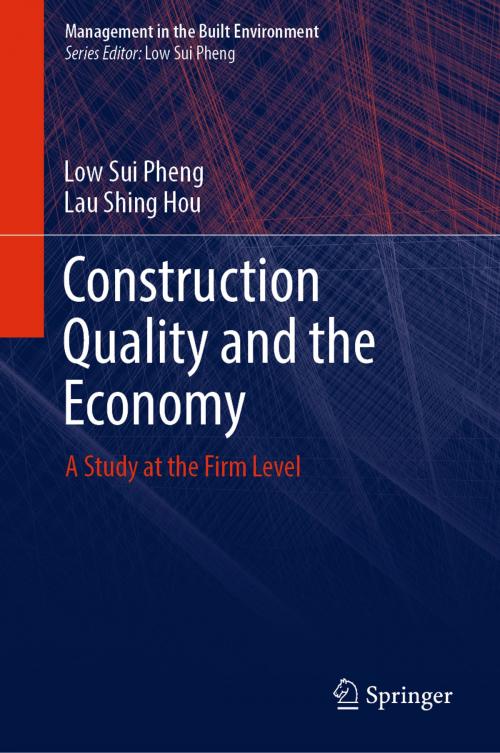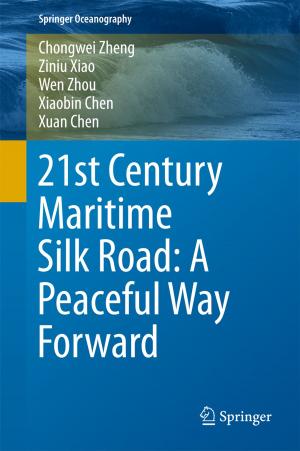Construction Quality and the Economy
A Study at the Firm Level
Nonfiction, Science & Nature, Technology, Construction & Construction Trades, Business & Finance, Management & Leadership, Management| Author: | Low Sui Pheng, Lau Shing Hou | ISBN: | 9789811358470 |
| Publisher: | Springer Singapore | Publication: | January 8, 2019 |
| Imprint: | Springer | Language: | English |
| Author: | Low Sui Pheng, Lau Shing Hou |
| ISBN: | 9789811358470 |
| Publisher: | Springer Singapore |
| Publication: | January 8, 2019 |
| Imprint: | Springer |
| Language: | English |
This book discusses the relationship between construction quality and the state of the Singapore national economy, and describes how construction quality is affected as contracting firms strategically manage issues relating to profitability and survivability during economic boom and bust cycles.
Adopting a three-pronged approach to explain the key issues, the book first explains the effect of the state of the Singapore national economy (boom or bust) on the construction quality delivered by contracting firms. Secondly, it explains how contracting firms respond to the performance of the national economy through their dynamic bidding strategies, leading to significant quality trade-offs in some instances, especially when there is imprecise market information. Thirdly, it recommends various strategic measures that key stakeholders and government policy-makers can take to circumvent the quality trade-off in the construction industry when faced with dynamic fluctuations in the performance of the national economy.
Although the book focuses on Singapore, it appeals to a global audience since countries worldwide (and their respective building-related stakeholders) face the same issues in terms of the time–cost–quality trade-off decision-making process involving the entire supply chain.
This book discusses the relationship between construction quality and the state of the Singapore national economy, and describes how construction quality is affected as contracting firms strategically manage issues relating to profitability and survivability during economic boom and bust cycles.
Adopting a three-pronged approach to explain the key issues, the book first explains the effect of the state of the Singapore national economy (boom or bust) on the construction quality delivered by contracting firms. Secondly, it explains how contracting firms respond to the performance of the national economy through their dynamic bidding strategies, leading to significant quality trade-offs in some instances, especially when there is imprecise market information. Thirdly, it recommends various strategic measures that key stakeholders and government policy-makers can take to circumvent the quality trade-off in the construction industry when faced with dynamic fluctuations in the performance of the national economy.
Although the book focuses on Singapore, it appeals to a global audience since countries worldwide (and their respective building-related stakeholders) face the same issues in terms of the time–cost–quality trade-off decision-making process involving the entire supply chain.















